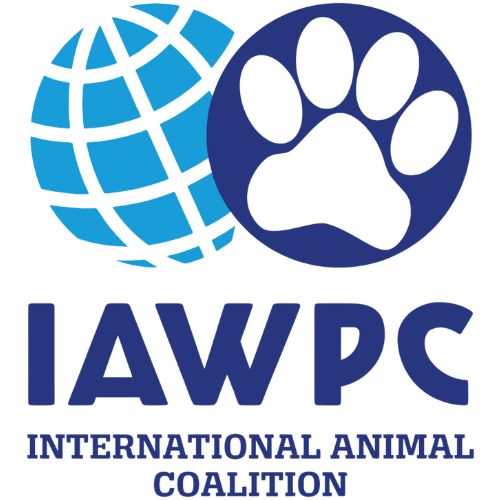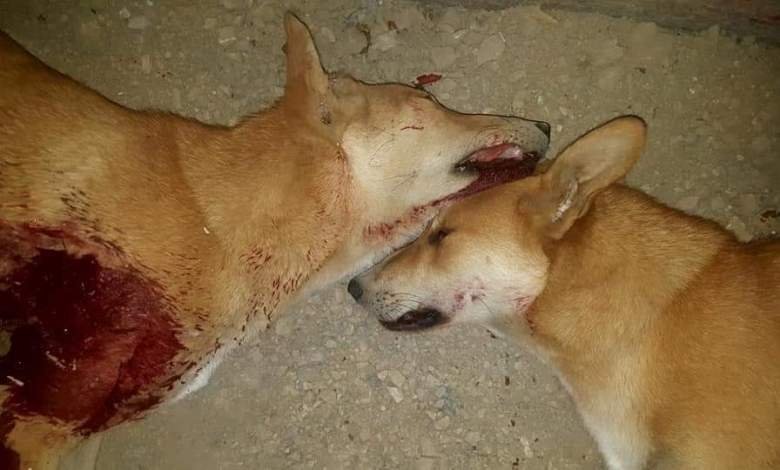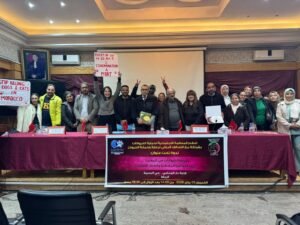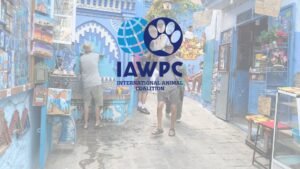Animal protection groups have warned that Morocco’s newly proposed animal welfare law will be seen as nothing more than a “political sham” which will be condemned unless it brings about an immediate end to the country’s widespread and brutal street dog killings.
The Moroccan government’s General Secretariat announced it had discussed and approved Draft Law No. 19.25 on Thursday during a cabinet meeting chaired by Prime Minister Aziz Akhannouch. The legislation, which focuses on the “protection of stray animals and the prevention of the dangers they pose,” was presented by Minister of Agriculture Ahmed Bouri, and comes in response to what officials describe as a growing public health and safety threat.
In the announcement, since no actual Draft Law has been publicly released yet, it makes unsubstantiated and unverified claims that that stray animals have “become a concerning source of the spread of some infectious and dangerous diseases,” and that they are a “direct cause of traffic accidents” and “numerous attacks on individuals.” It also claims to seek a legislative framework that both protects public safety and ensures “adequate care and protection for stray animals—particularly dogs.”
However, global campaigners are highly sceptical. The International Animal Welfare Protection Coalition (IAWPC), a global alliance of 26 animal charities including the RSPCA, Dogs Trust and PETA, says the starting point for this Draft law must be to immediately halt Morocco’s brutal and violent dog killing programme if it is to have any credibility and be taken seriously.
The IAWPC has documented widespread and systematic killings of both stray and owned dogs across Morocco, which it says are being carried out by so-called “death squads” in preparation for the country’s role as co-host of the 2030 FIFA World Cup.
The group estimates as many as three million dogs could be killed before the tournament kicks off.
“These killings are taking place every single day, in full view of children, tourists, and local communities,” said Les Ward MBE, Chairman of the IAWPC. “It is relentless, merciless and utterly inhumane. Since the IAWPC campaign began, it has become clear to us and everyone else, that we are dealing with a slippery and untrustworthy government. They make claims that have no basis in reality, including that the killing has ended, when every Moroccan knows it is happening every single day.”
The IAWPC has offered to help Morocco implement large-scale, humane dog population control strategies such as Trap-Neuter-Vaccinate-Release (TNVR), but says its repeated offers have been ignored.
The group also pointed to advice from the World Health Organisation, which has stated that mass culling is not effective in controlling rabies – a disease still present in Morocco.
“Mass dog vaccination has repeatedly been shown to be effective for controlling dog-mediated rabies,” the WHO said in a formal statement. “Removal of dogs does not decrease dog density or control rabies in the long run. Mass culling of dogs should therefore not be a part of a rabies control strategy … it is ineffective and may be counterproductive to vaccination programmes, particularly when they target free-roaming dogs”.
The IAWPC also revealed it has evidence that sterilised, vaccinated dogs – identified by special tags – are being killed and their tags removed afterwards to conceal their status. Campaigners say this act undermines herd immunity and heightens the risk of rabies outbreaks.
Ward warned: “It would be laughable, if it wasn’t so serious, but it seems the Moroccan Government will seek to use the dogs as the scapegoats in any new legislation for its failures, when it’s clear to everyone else, that it has been their mismanagement over decades, relentlessly pursuing a brutally violent, cruel and ineffective dog massacre programme and ignoring WHO, by also pursuing a less than meaningful counterproductive rabies programme, who are to blame. Instead of scapegoating the dogs, they should accept their failures”.
In a recent interview with CNN, Mohammed Roudani, Head of the Public Health and Green Spaces Division at Morocco’s Ministry of the Interior, appeared to acknowledge the need for reform. “We must deal with the issue in a different way. No more slaughter. No more strychnine. We need an ethical solution,” he said.
The IAWPC is now calling on FIFA, as well as international governments, to step in and pressure Morocco to end the inhumane mass killing of dogs and implement humane and proven alternatives.
Ward added: “The Moroccan Government should leave the dark ages when dealing with societal challenges. Instead of continuing down the path of violence and death, it should seize the opportunity and follow humane solutions.
“If the Government chooses otherwise through its proposed new draft law and continues its dog killing programme, they will rightly face condemnation, its tourist industry will inevitably be damaged, and the IAWPC will increase its campaign of opposition.
“The solution is simple: the Moroccan Government’s proposed new draft animal protection law must stop the cruelty and dog killing in whatever form.”





